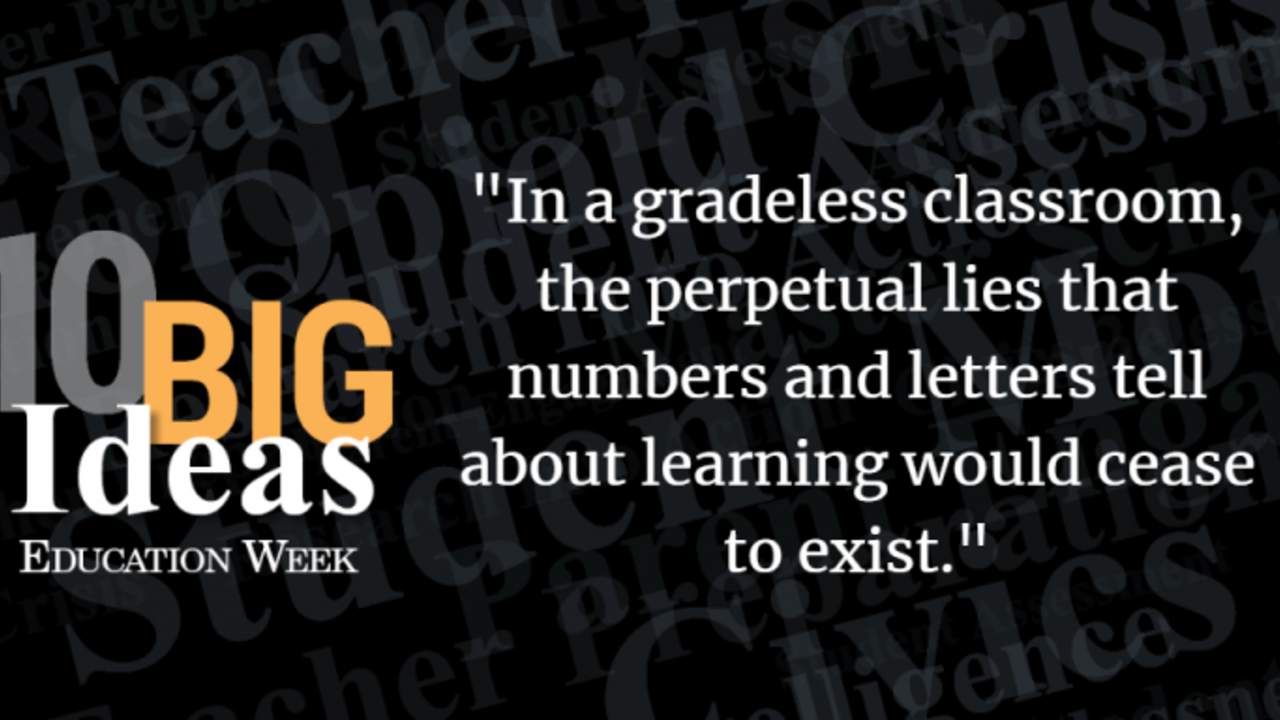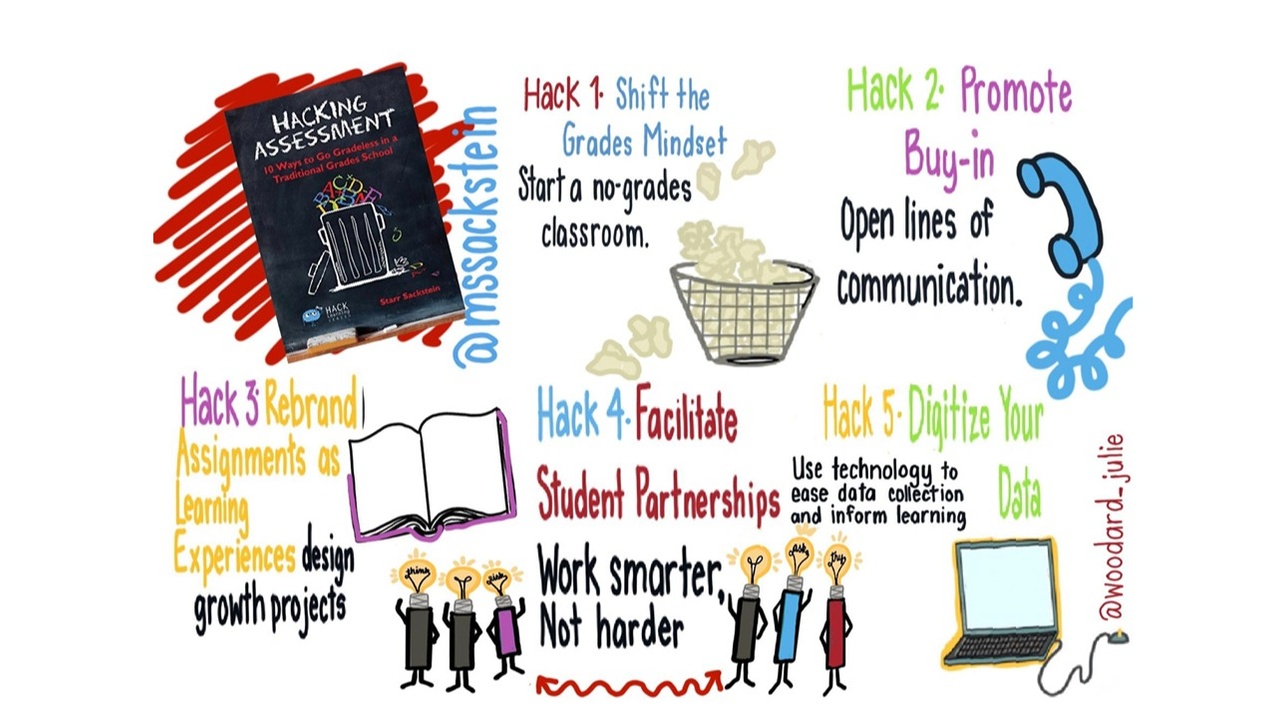Why Grading And Evaluating Are Not Assessment
Jan 17, 2018
Times 10 Founder Mark Barnes wrote about revolutionizing assessment by going gradeless in Education Week’s 10 Big Ideas special report. Some readers are intrigued, and some are pushing back.
In Episode 110 of the Hack Learning Podcast embedded above, Mark takes on the pushback and explains why grading and evaluating are not parts of effective assessment.
No, Students Don’t Need Grades, excerpted from Education Week’s 10 Big Ideas article
Technology and social media continue to disrupt education. Classrooms are morphing into maker spaces; STEM labs and media centers are filled with fascinating electronic gadgets. Teachers spend less time in front of the class and more time in the middle of the action. Schools, teachers, leaders, parents, and students across the country are embracing this brave new world.
In the midst of rapidly changing technology, and consequently, pedagogy, there is another fundamental change I would argue more educators need to embrace. It’s a growing movement to alter the one function of education that most stakeholders steadfastly refuse to revise: how we assess learning.
If you’re interested in disrupting education far more than the 3-D printer or smartphone ever could, consider schools and colleges where there are no grades. Imagine classrooms where teachers never place numbers, letters, percentages, or other labels on students’ work; where report cards don’t exist; and where the GPA has gone the way of the dinosaur.
In a gradeless classroom, the perpetual lies that numbers and letters tell about learning would cease to exist. Honor and merit rolls would disappear. There would be no school valedictorian. Clubs that celebrate high performers would disband. Many colleges and universities would change how they admit incoming freshmen, and academic scholarships would need a makeover.
Moreover, teachers would learn how to effectively assess academic performance, and students would become independent learners, driven by curiosity and inspiration rather than by the empty promise of a “good” grade or the threat of a “bad” one.
Now, this may sound like only a big, perhaps even unrealistic, idea. But the gradeless classroom already exists in schools worldwide. While I don’t claim to be the creator of no-grades learning environments, I and thousands of my colleagues across the United States and around the world have turned it into a movement that is helping educators reimagine how they assess learning.
Read the rest of my EdWeek article, part of the 10 Big Ideas in Education special report, here.
Mark Barnes on grades, feedback, and evaluation
- Grades and feedback are not the same. Grades are numbers, percentages, and letters that label students and mislead stakeholders about what has or has not been learned.
- There are many factors that impact learning, and teachers must have a conversation with students about those factors.
- It’s crucial that teachers ask kids questions: Why did you do this? Why this way? What if you had done this instead? What don’t you understand? How can you better understand this?
- Education needs to eliminate evaluation from assessment. Evaluation is about judging performance, and the only shareholders suited for this type of judgement are the learners. Teachers should relegate their feedback to observations and questions and teach kids how to judge their work.





